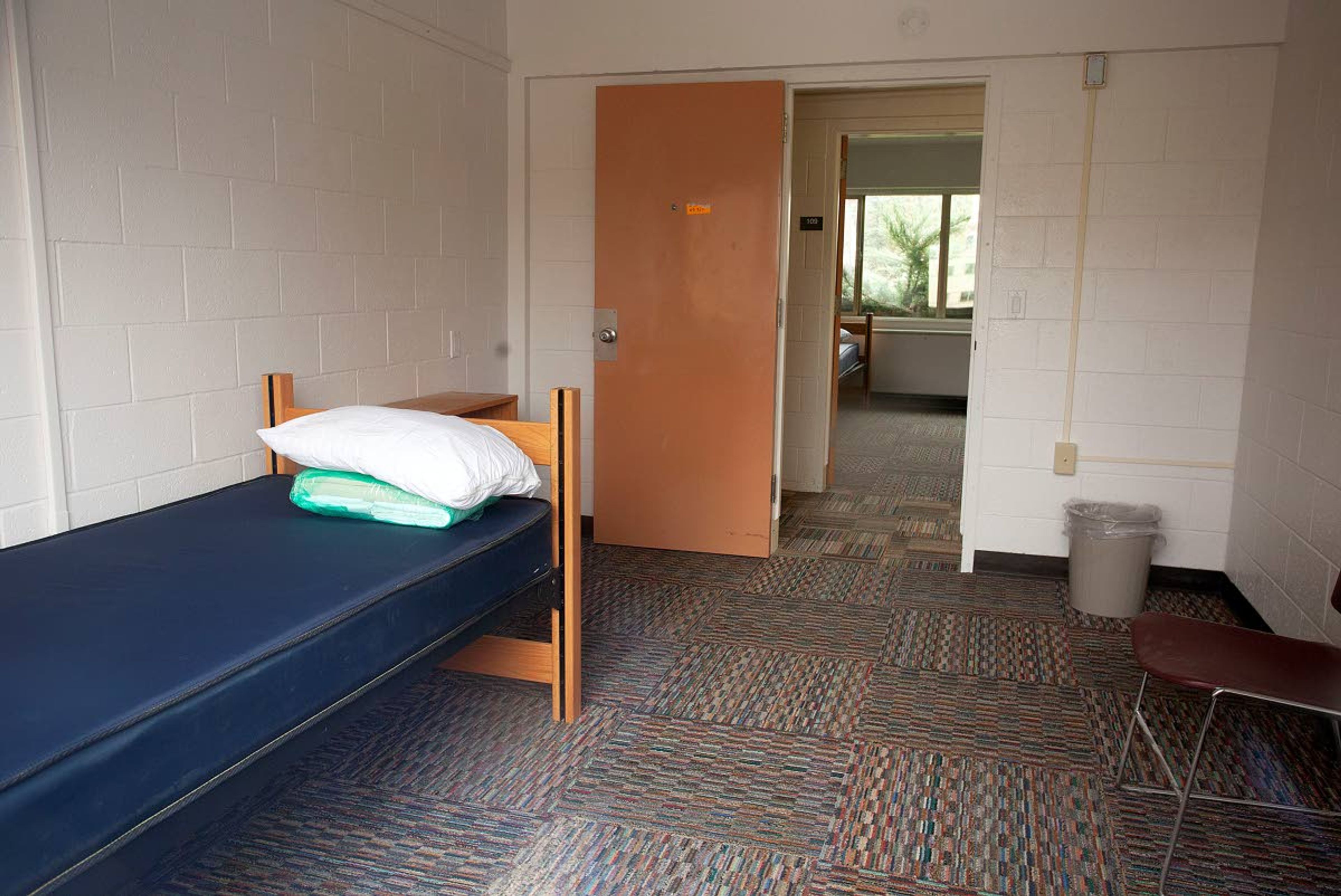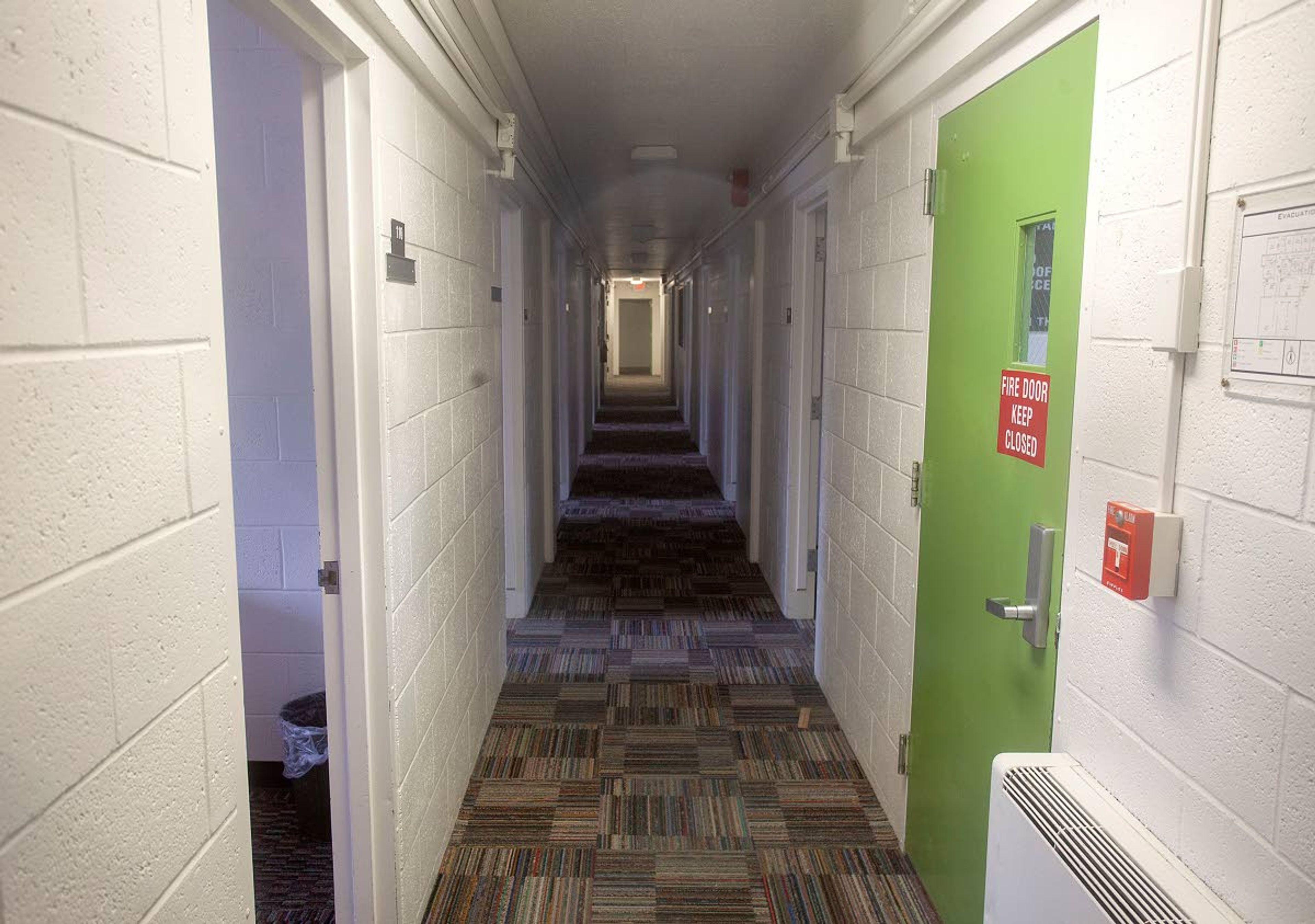UI’s Targhee overflow space for Gritman
Officials say the former dormitory will serve as isolation space for infected patients with low acuity and non-severe symptoms
The University of Idaho and Gritman Medical Center have announced a former dormitory has been prepared to house local cases of COVID-19, should the demand for care and isolation exceed the hospital’s capacity.
Located on the southern edge of the school’s Moscow campus, UI Communications Director Jodi Walker said Targhee Hall should be able to offer space for an additional 25 to 30 patients.
While it has been quite some time since Targhee hosted student residents, Walker said only a couple of years ago it was used as temporary office space by the College of Education, Health and Human Sciences while their main facility was under renovation.
“Targhee was an obvious one for us because it had been used as a dormitory in the past — offices more currently — and it hadn’t been offline for so long that it was a huge deal to bring it back on,” Walker said. “It has technology, it has all the things that we need so that was a fairly easy one to bring back in and be able to offer it.”
Walker said Gritman would staff the building and run operations while UI would provide support maintaining the facilities.
Gritman officials said the normally 25-bed critical access hospital has also identified additional rooms within current facilities that have been or can be converted to host patients, bringing its potential capacity to 43 patient rooms. Hospital spokesman Peter Mundt said it is still uncertain whether the hospital will even need the excess capacity but they’d rather prepare now than be caught flat-footed later. Mundt pointed out Gritman will still need room for patients who are in the hospital for reasons not related to COVID-19 and those patients will need to be protected.
“Everybody’s still having heart attacks and broken ankles and car crashes — the things that the healthcare system normally has to deal with,” he said. “If we’re overwhelmed with COVID cases, we won’t be able to respond as effectively to those other types of health care situations, which are normal in everyday hospital operations.”
If the need arises, Mundt said Targhee would likely become a place for people in less serious condition who have been infected and need to recover in isolation. He said rooms at the hospital would be reserved for those that need the highest level of care and direct access to hospital resources like ventilators.
He said this is why it is critical that community members continue to do their part minimizing social contact as much as possible. He said while it is likely the community and nation will continue to deal with the virus for months, if the rate of infection can be slowed significantly enough it will put less demand on local healthcare infrastructure, including patient rooms.
“If the public is serious and does their part, this thing goes away — this virus needs a host and if we deprive this virus of all of its hosts, this virus goes away,” explained Chief Nursing Officer Bob Kendrick. “It can survive on a surface, but not very long — it’s a matter of hours — but it survives inside of people and so if we can keep the hosts away from this virus, this thing dies off.”
Mundt said he has been encouraged by the high level of community support for local healthcare workers on the front lines combatting COVID-19 in the region. He said local businesses both large and small have offered to donate their own stock of filtration masks capable of protecting health care workers from the disease and numerous others have sewn surgical masks from cloth. He said local education services have begun offering childcare to hospital workers and even local restaurants have offered to feed hospital staff.
Walker said in addition to offering rooms for recovering patients, UI is also working to produce 3D-printed and sewn surgical masks.
“We’ve been really overwhelmed, in a positive way, with the outpouring of support from our community,” Mundt said. “We live in a great community where people have been proactive and working with Gritman to help care for our community and we’re incredibly grateful for that.”
Anyone experiencing symptoms including fever, cough and shortness of breath, are advised to call their primary care provider or the Gritman COVID-19 hotline at (208) 883-4109 before going to the hospital. Staff will ask people who call some basic questions about their symptoms and provide further instructions.
A story about the University of Idaho and Gritman Medical Center regarding use of Targhee Hall ran in Monday’s paper but did not appear in its entirety. The Daily News regrets the error. Today’s story covers information missing from the Monday version.
Scott Jackson can be reached at (208) 883-4636, or by email to sjackson@dnews.com.









